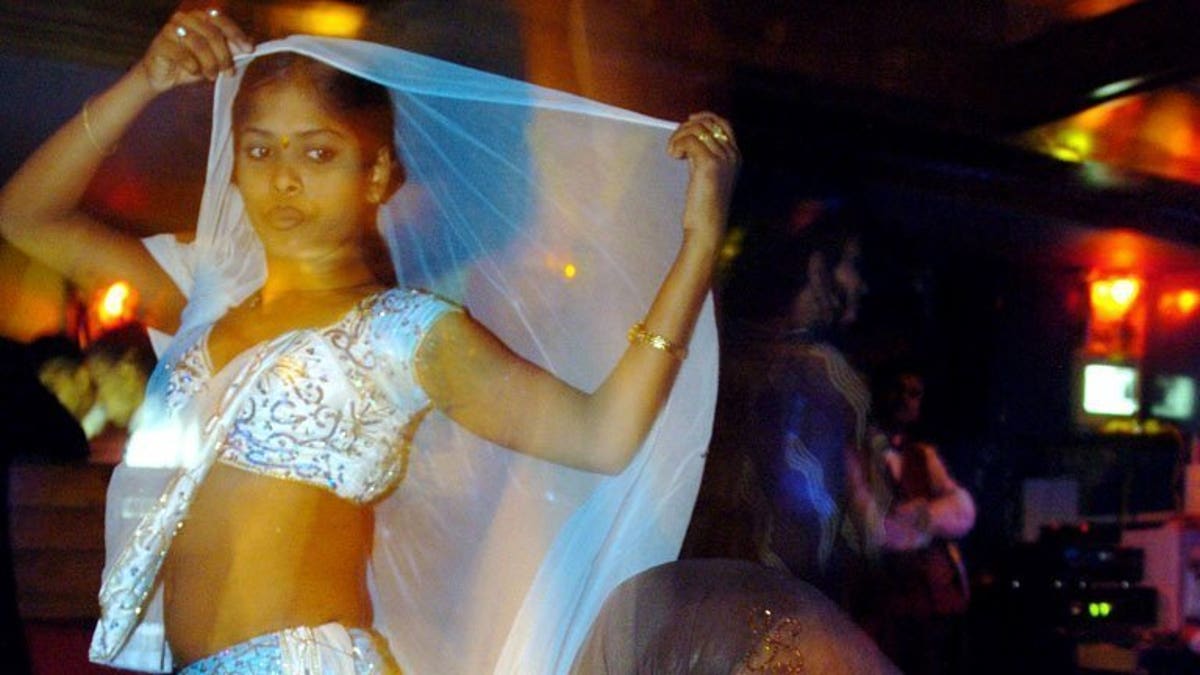
File picture shows bar dancers performing during their evening show in Mumbai, on May 6, 2005. India's top court on Tuesday overturned a ban on dance bars in the city of Mumbai, allowing hundreds of premises which employed women to dance and entertain customers to reopen. (AFP/File)
NEW DELHI (AFP) – India's top court on Tuesday overturned a ban on dance bars in the city of Mumbai, allowing hundreds of premises which employed women to dance and entertain customers to reopen.
The ruling upheld a 2006 judgement by the Bombay High Court, which said the ban instituted by the Maharashtra state government a year earlier violated the constitutional right to earn a living.
The decision comes amid concerns over "moral policing" in Mumbai, India's financial capital and the home of Bollywood, where police in recent years have enforced a series of strict measures.
The regulations include early closing hours for nightclubs, excessive red tape, outdated rules on overcrowding and an increase in the minimum age limit to buy beer from 18 to 21.
Supreme Court judges Altamas Kabir and S.S. Nijjar said they agreed with the high court's decision "that struck down the 2005 amendment in the Bombay Police Act whereby closing down dance bars in the city of Mumbai".
Tuesday's decision will allow dance bars to operate legally after a forced hiatus of several years, while the state government appealed the high court ruling.
The estimated 700 establishments across Maharashtra state employ more than 75,000 women who perform Bollywood-style dance routines and get showered with cash in return.
The state government had branded the bars in Mumbai as dens of iniquity and fronts for prostitution. It claimed they corrupted the young and were meeting places for criminals.
Bar owners, activists and non-governmental organisations hotly contested the ban and denied the allegations, saying the establishments only staged dance shows.
There was no immediate comment on the ruling from the state government, which has waged a long campaign against the dance bars.
The dancers' labour union had opposed the ban, saying many of its members would be forced into prostitution to earn a living.
In ritzy bars in Mumbai frequented by well-heeled businessmen, dancers who usually bared only their midriffs were able to earn more than 100 dollars a day. They made far less money at down-at-heel establishments.
